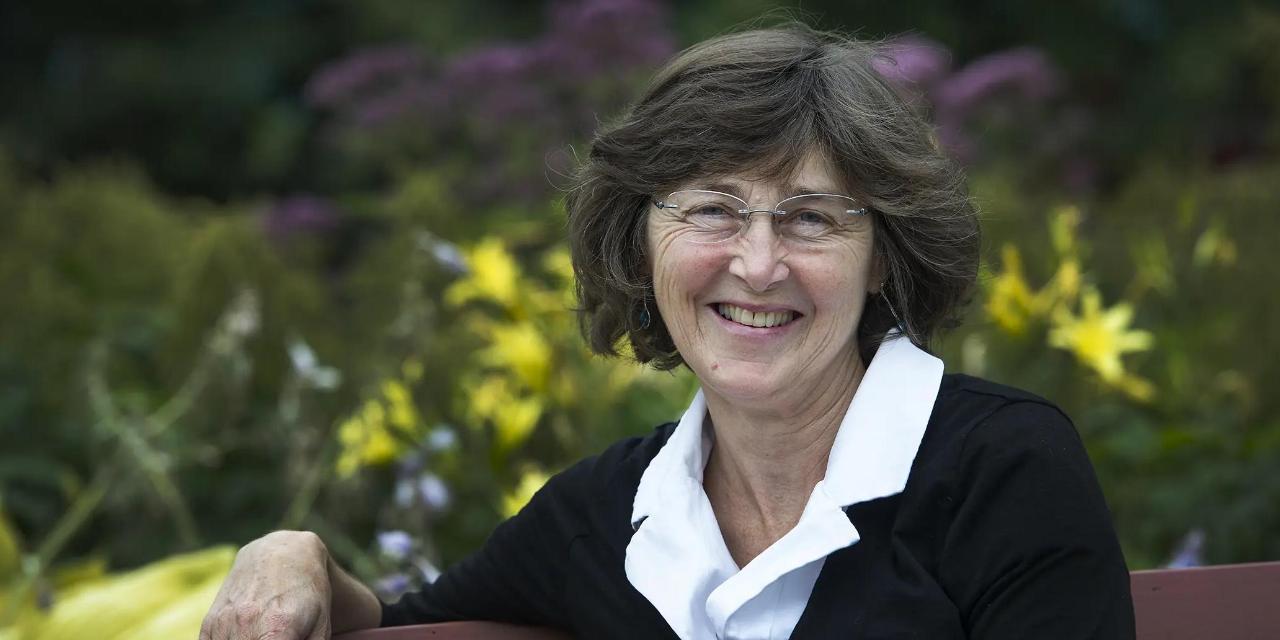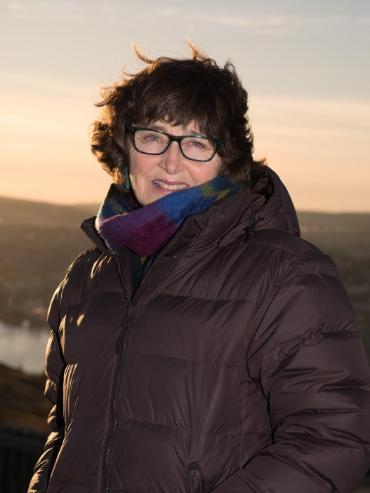Keystone scholar
The image of the lone researcher at work in the lab or at an office desk is rarely, if ever, an accurate depiction of how groundbreaking research takes shape today.
Research doesn’t thrive in isolation. Like a living ecosystem, it needs networks. It needs roots, branches, energy and time.
Over the course of her four-decade career at Memorial University, Dr. Barbara Neis built and nourished one of the most influential research ecosystems in the university’s history.
Interdisciplinary and community-connected, her work reshaped not just Memorial’s approach to social science, but the province’s understanding of labour, health, gender and the environment.
Dr. Neis found her place in Memorial’s ecosystem early in her academic career.
After completing her bachelor’s degree in sociology at York University’s Glendon College in 1975, she first visited Newfoundland on her honeymoon. Having fallen in love with Cape St. Mary’s and the Cape Shore, she decided to begin her graduate work at Memorial in 1976.
She earned her master’s degree in sociology in 1980 and travelled to the University of Toronto to undertake her doctoral research, which focused on the restructuring of Newfoundland’s fishing industry between 1968 and 1986. Her studies revealed the interconnected social, political and ecological dimensions of work in outport communities.
When she returned to Memorial as a faculty member in 1988, she brought with her a deep belief that research must serve the communities from which it emerges.
She rooted her work in that belief and reached out to form important partnerships. She collaborated with health professionals, women’s groups, unions, policymakers and with the people whose livelihoods relied on the fishing industry.
Her research revealed how occupational health, environmental change and gendered labour practices were related and intertwined. It showed how real-world solutions required collaboration across disciplines.
This approach gave rise to the SafetyNet Centre for Occupational Health and Safety Research, which Dr. Neis co-founded and co-directed.
The centre became a hub for applied social research taking place across the province. It drew researchers from medicine, sociology, engineering and the marine sciences. It engaged directly with people working in outport communities to improve workplace health and safety and community resilience.

Dr. Barbara Neis was named Memorial’s John Lewis Paton Distinguished University Professor in 2017. Photo by Chris Hammond from Memorial University Archives.
At a time when academic research often remained siloed, Dr. Neis was branching out.
Her research on occupational allergy and asthma among snow-crab processors provided insight into the problems created by cumulative exposure. It suggested prevention strategies and changed standards and protocols across the industry.
She examined the gendered and intergenerational effects of the cod moratorium in Newfoundland and Labrador. This work revealed issues that, if not addressed, would lead to the disappearance of small-scale fisheries and the communities that rely on them.
Her work drew attention to the conditions under which people live and work.
In 2012, she launched perhaps her most ambitious project: the On the Move Partnership. This seven-year initiative, funded by the Social Sciences and Humanities Research Council of Canada (SSHRC), studied employment-related geographical mobility across Canada.
With 55 co-investigators at 27 institutions, On the Move examined how workers — from fishers to nurses to construction crews — moved across regions and industries, and how these patterns affect families, communities and public services.
The impact of Dr. Neis’s work was not limited to research output. She mentored generations of students and emerging scholars, championed interdisciplinary collaboration and contributed to countless public forums and government advisory bodies.
She received the President’s Award for Outstanding Research from Memorial in 1998 and the Atlantic Centre of Excellence in Women’s Health Leadership Award in 2002. In 2006, she won a prestigious Trudeau Foundation Fellowship.
In recognition of her national leadership, she was elected to the Royal Society of Canada in 2013. She was named Memorial’s John Lewis Paton Distinguished University Professor in 2017 and was appointed a member of the Order of Canada in 2018.
Through it all, she treated research not as a product, but as a part of a living system that must be nurtured and connected. She made space for voices that had been ignored. She brought outport knowledge into academic halls and academic insight back to outport homes.
Today, the ecosystem she cultivated continues to prosper. SafetyNet remains a vibrant centre for community-based research. On the Move lives on in public policy and academic discourse. The scholars she mentored carry her methods and principles into new fields and new regions around the world.
Her legacy is not only found in citations or awards but in the sustained connections she made between disciplines and between researchers and communities.
In every strong ecosystem, there are keystone species that hold it all together. They connect one part to another and make it possible for the whole to thrive.
In Memorial’s research landscape, Dr. Neis has been a keystone scholar. What she grew, with care and persistence, branched out into the lives of everyday people and communities. And her work continues to flourish.
